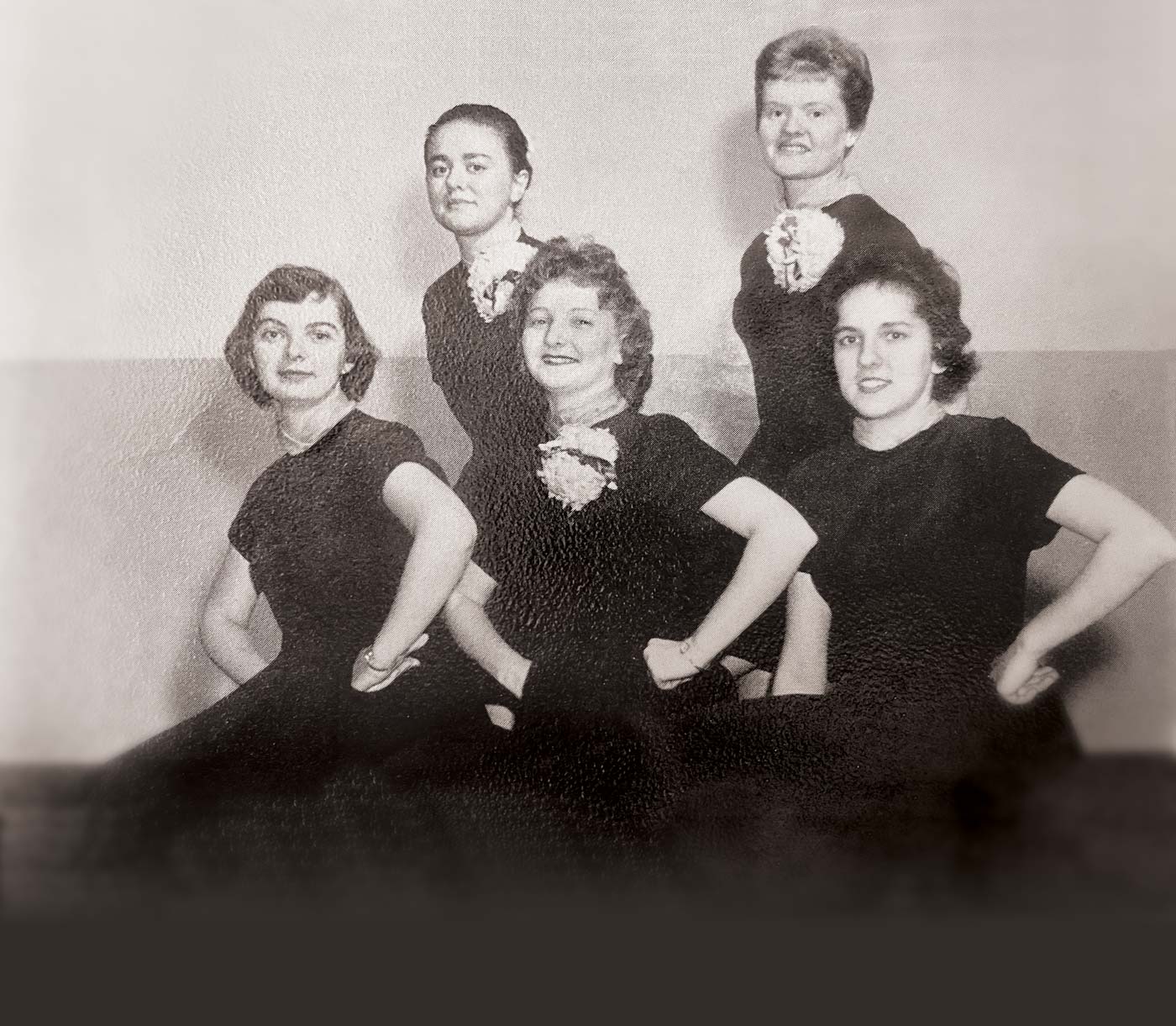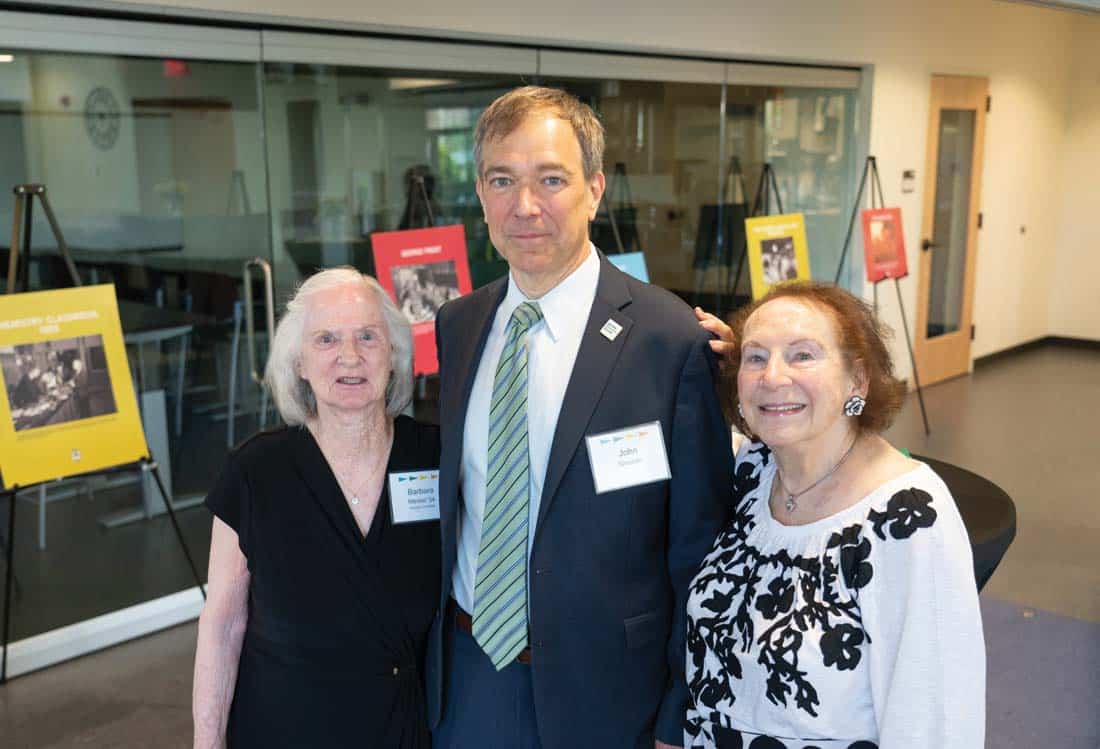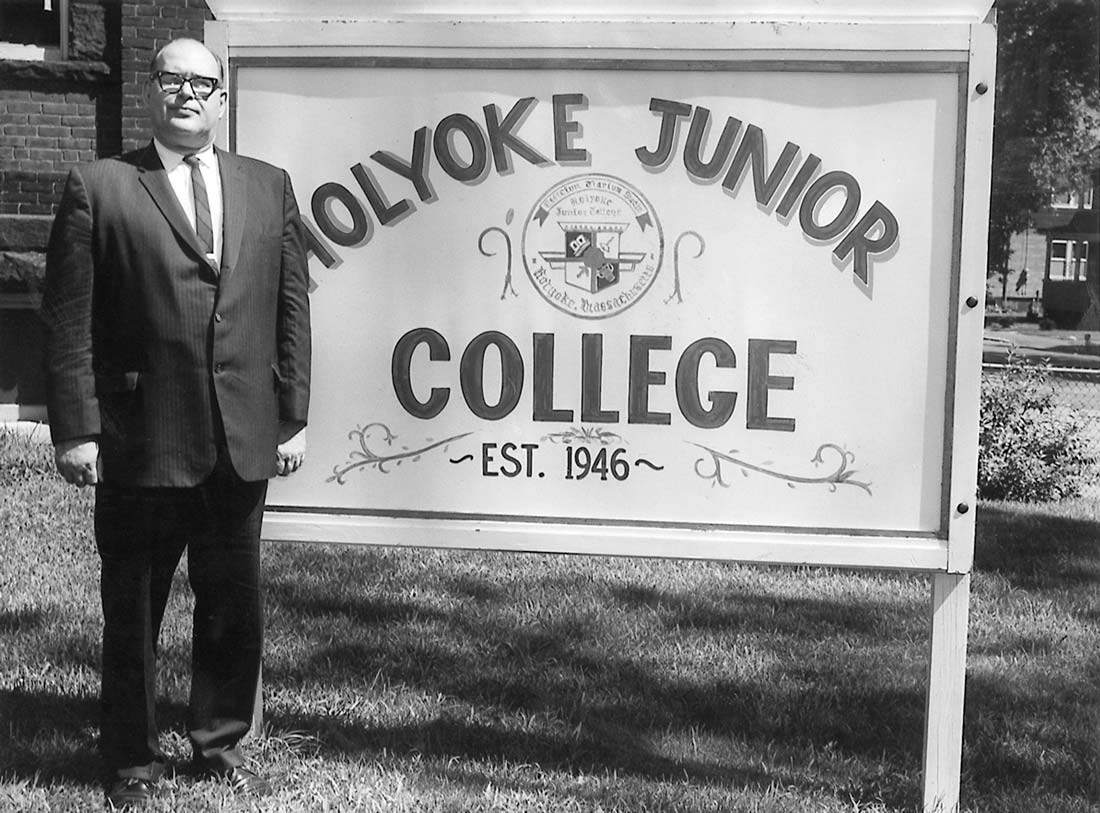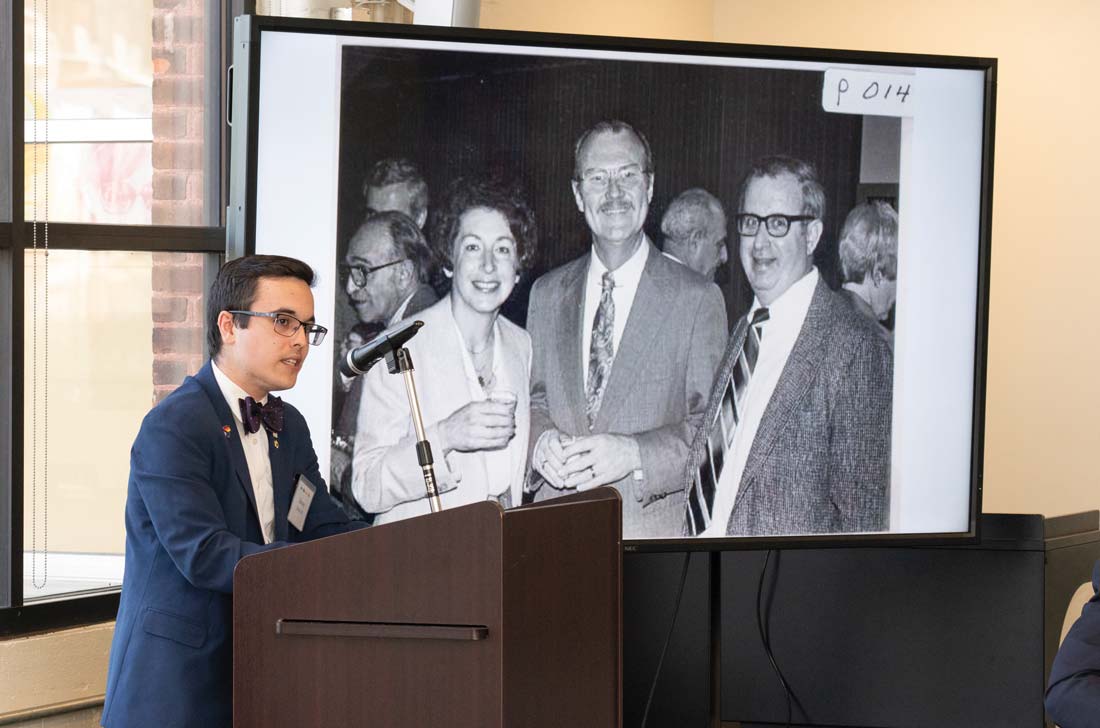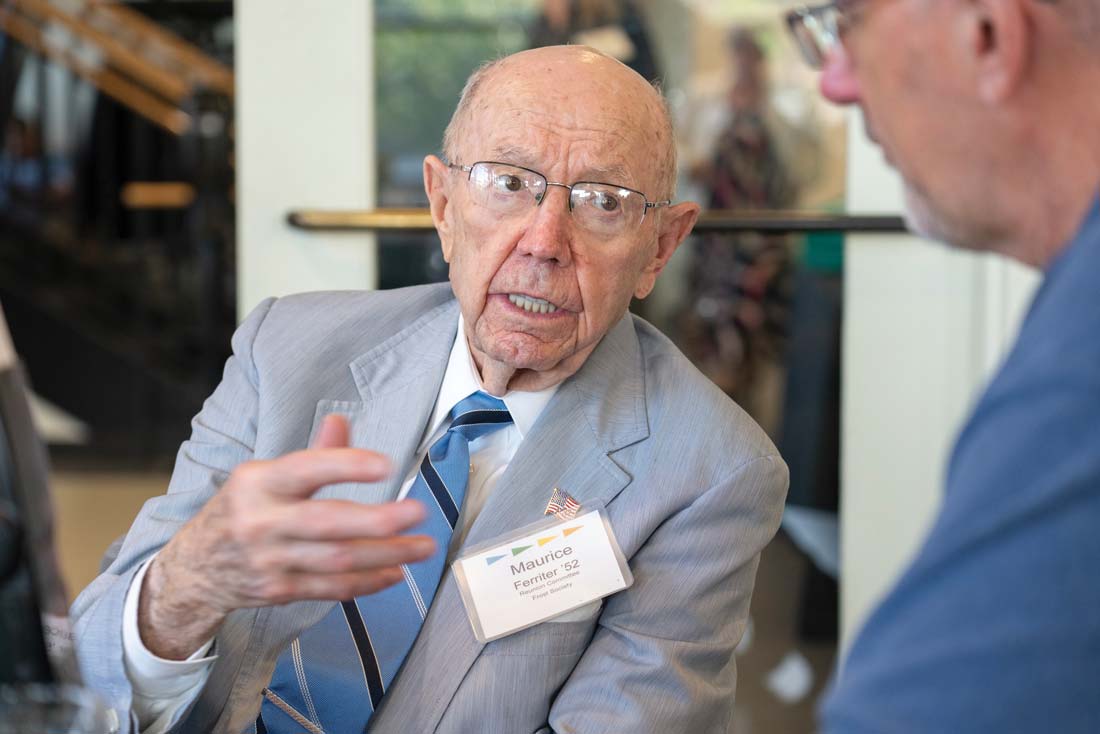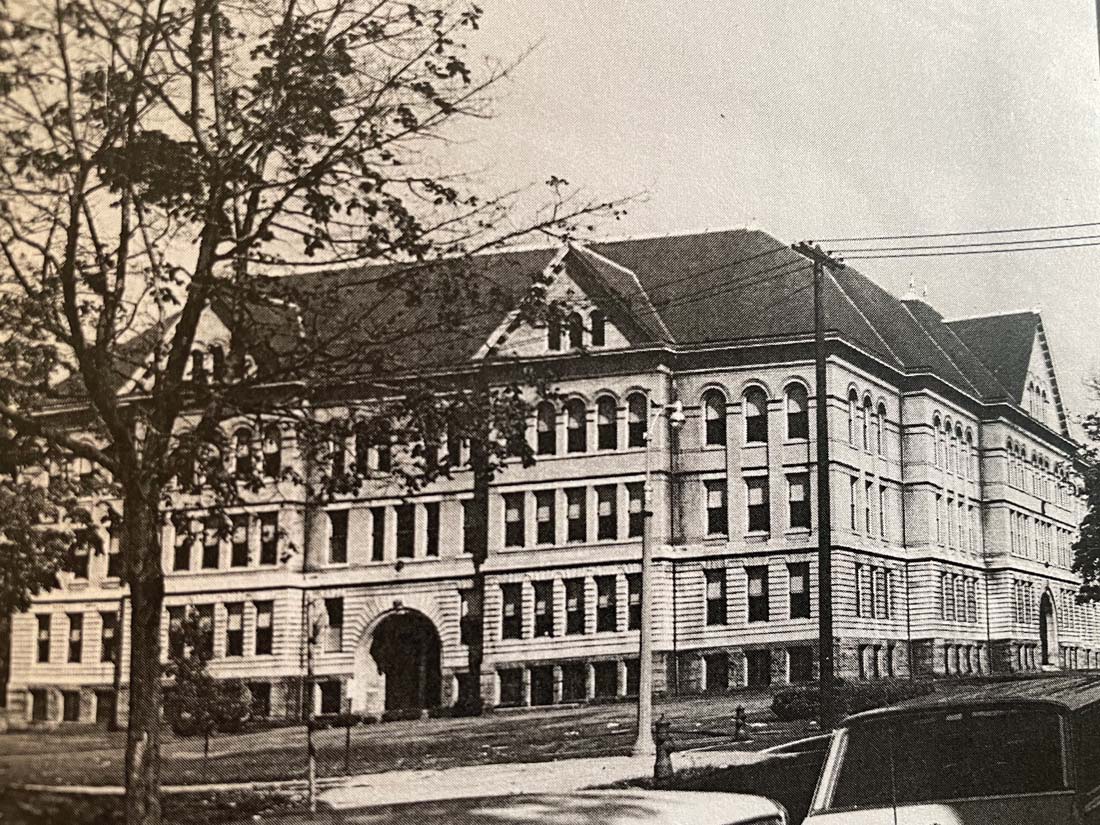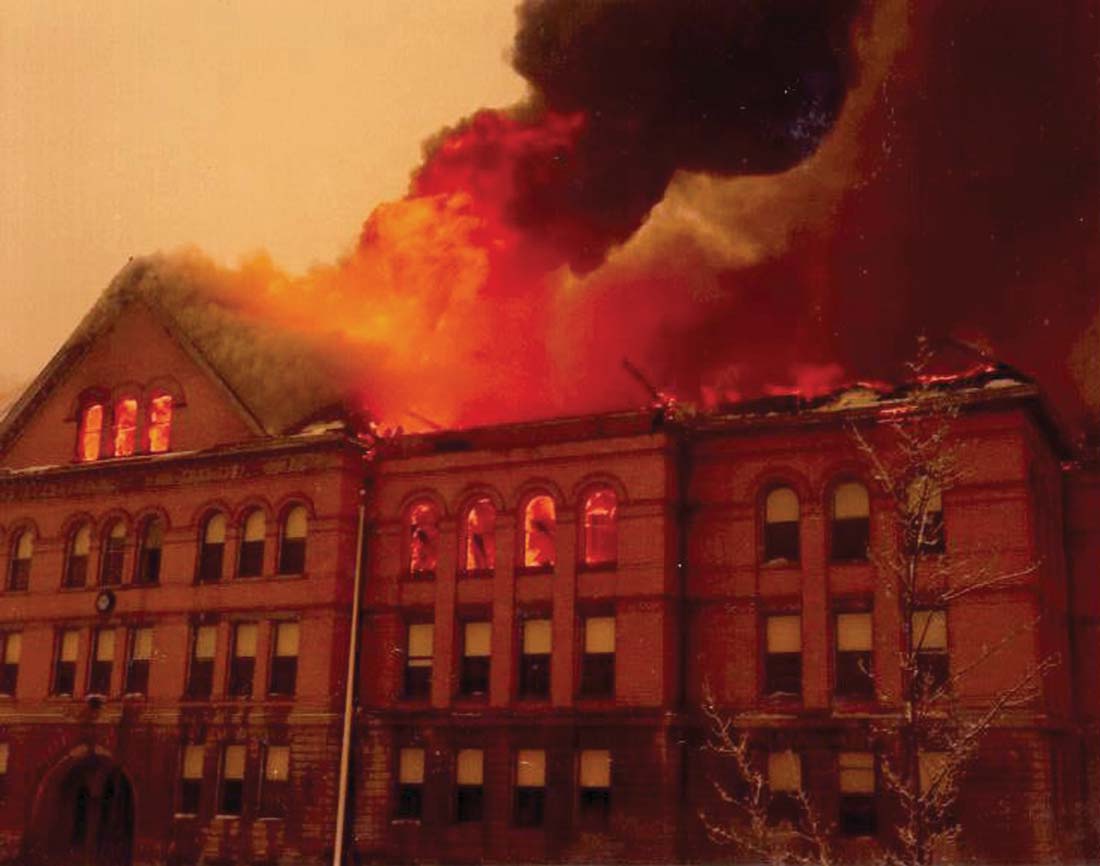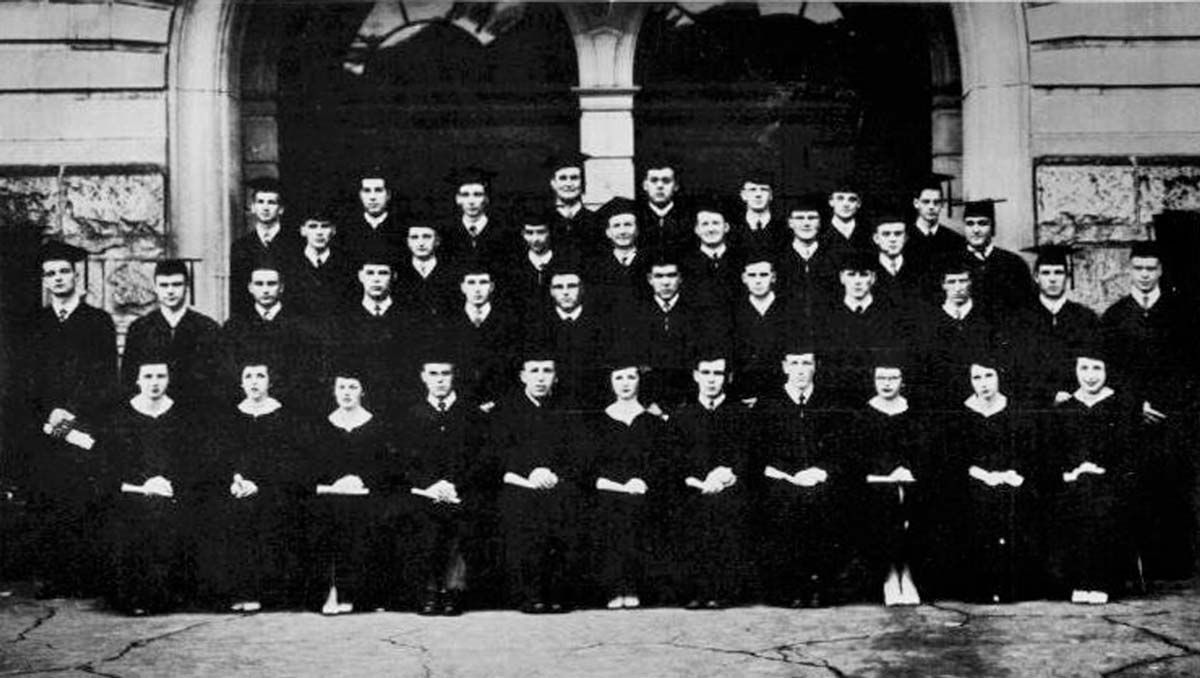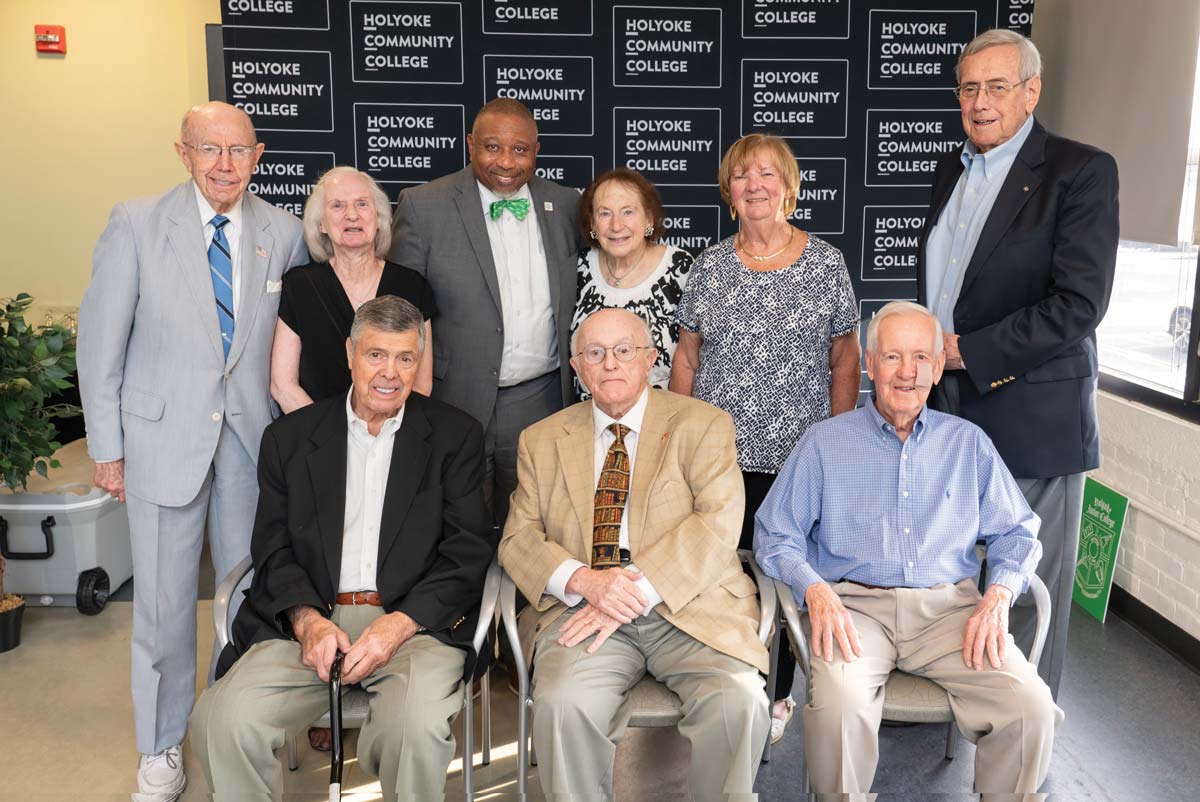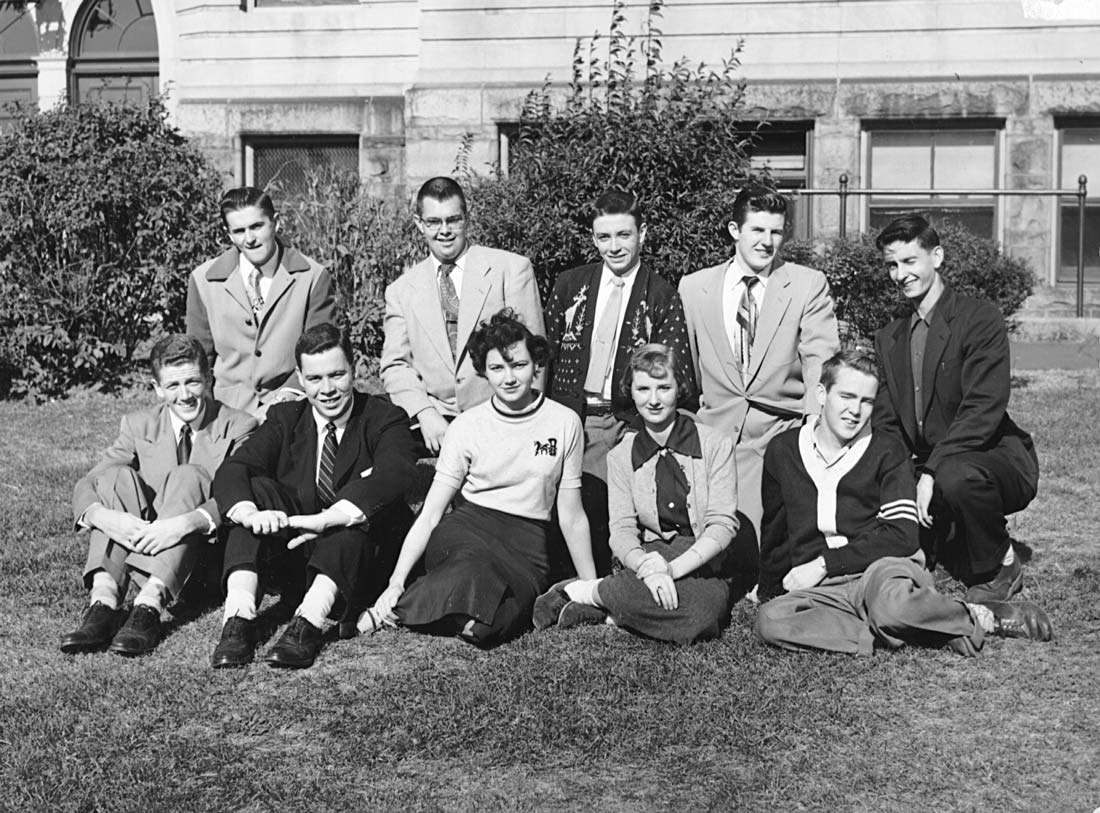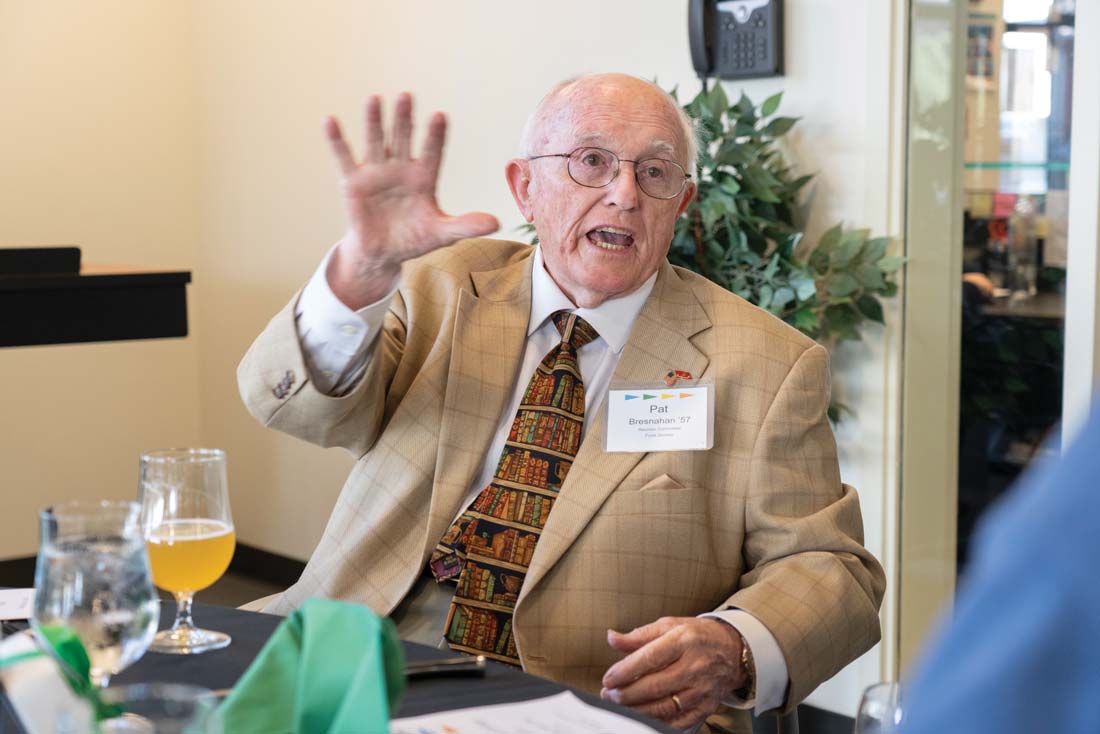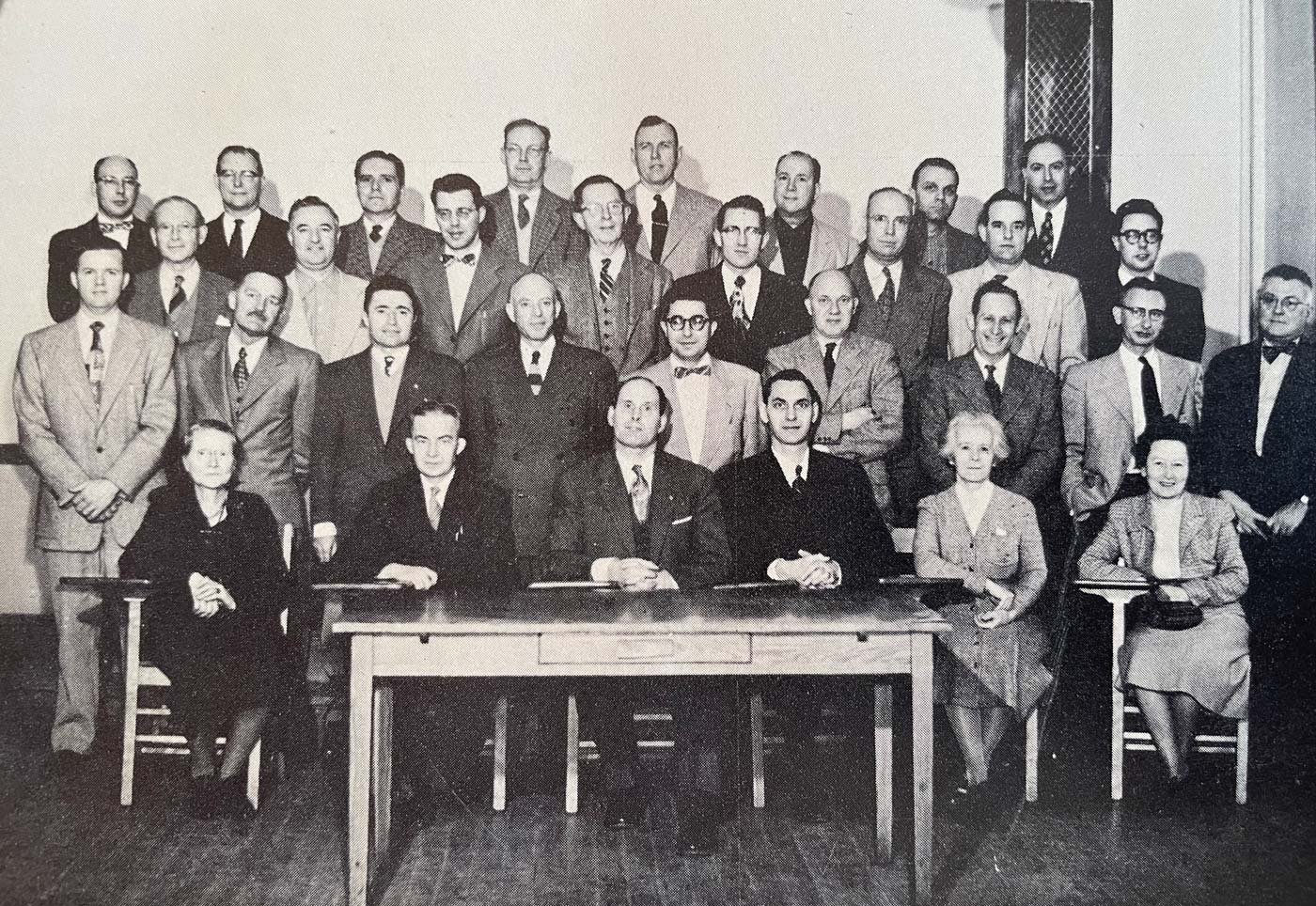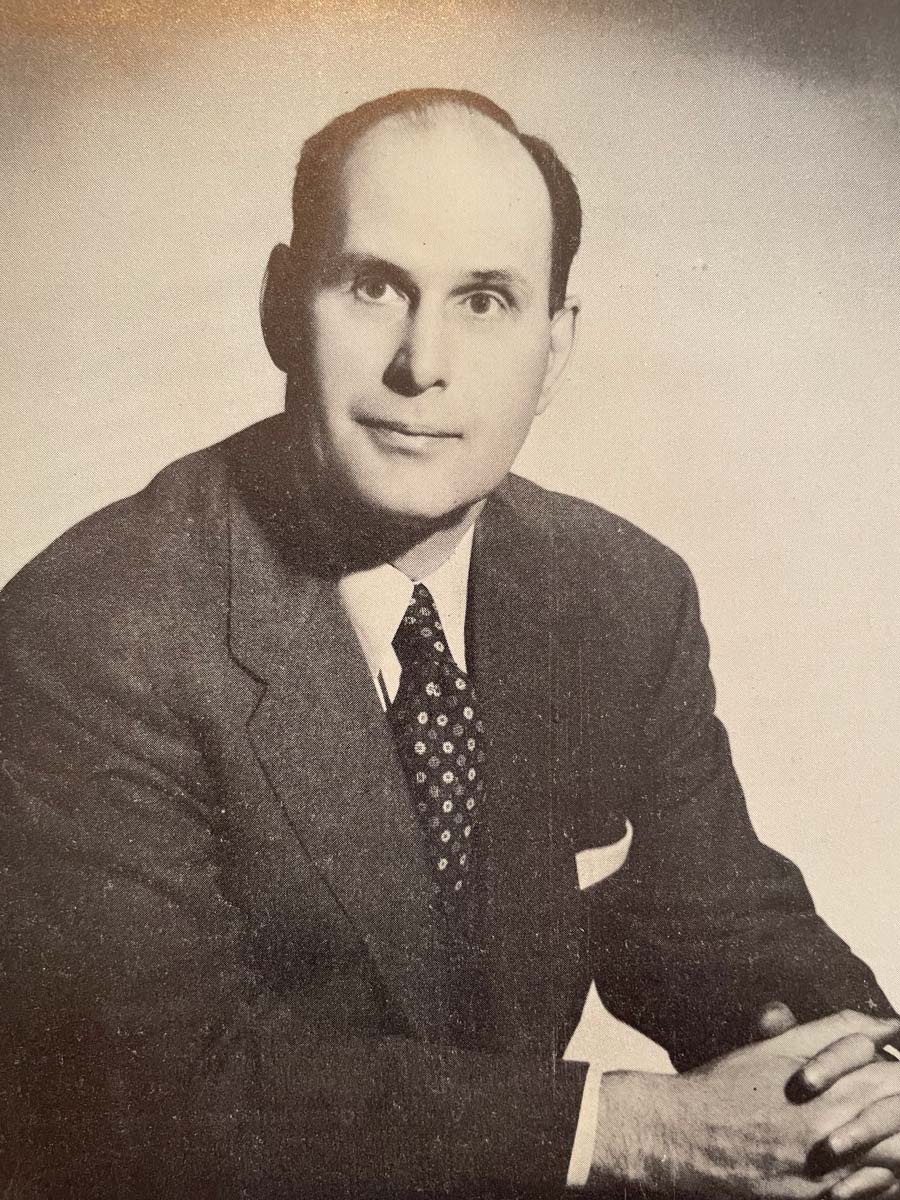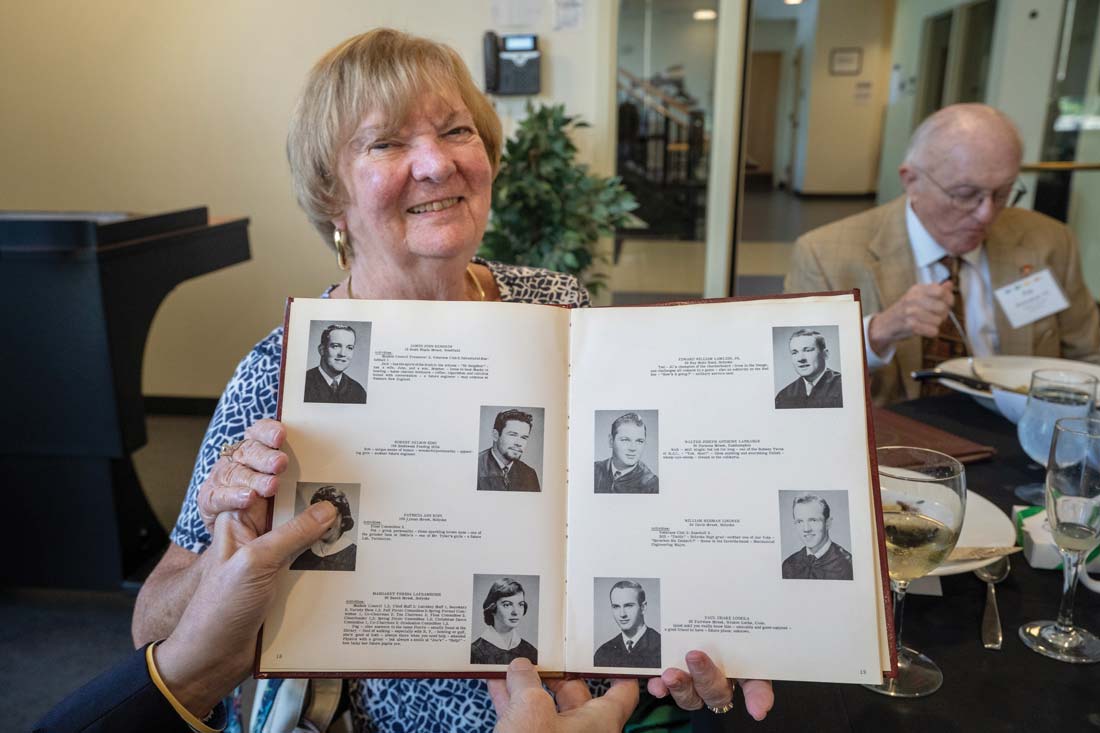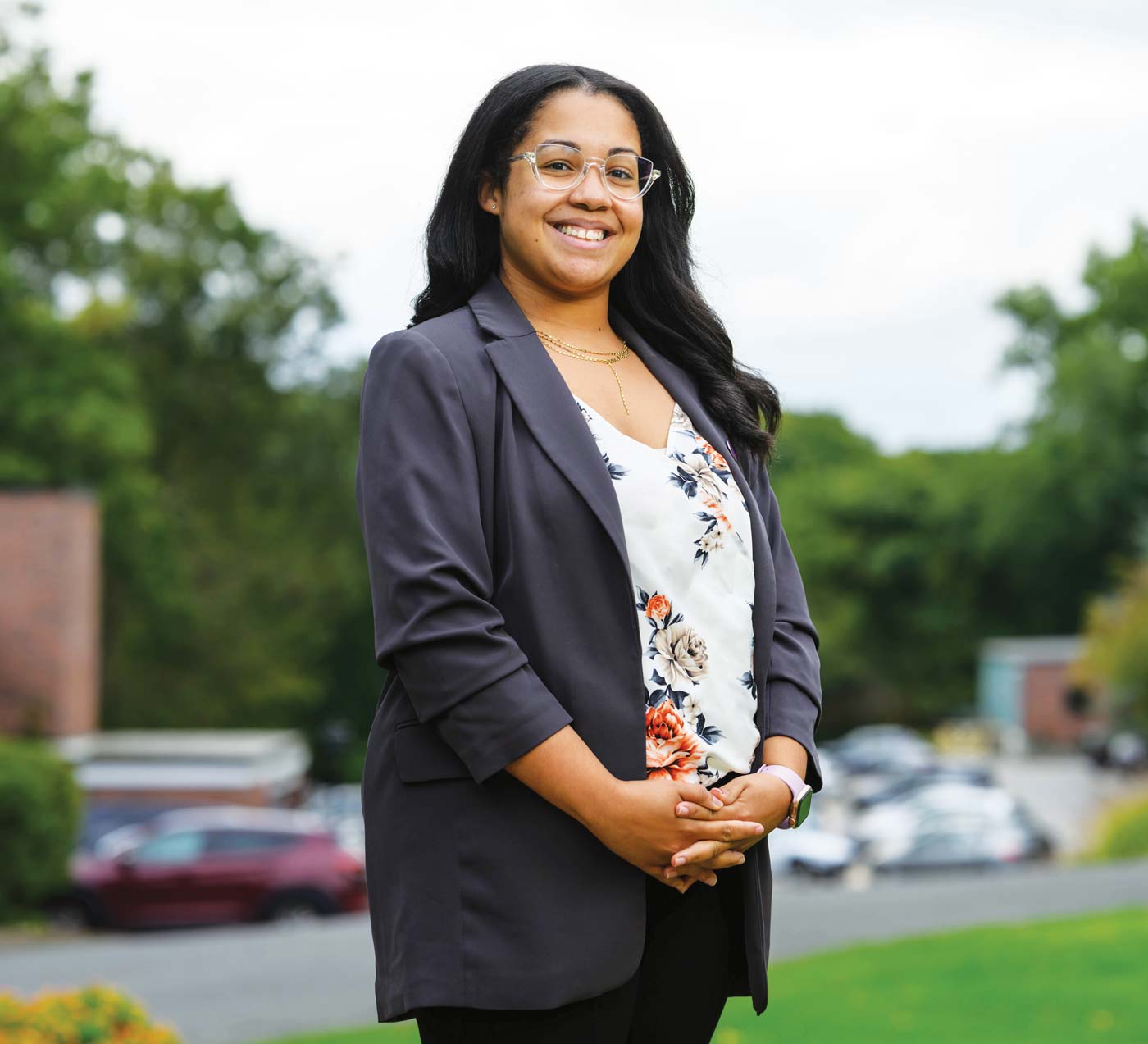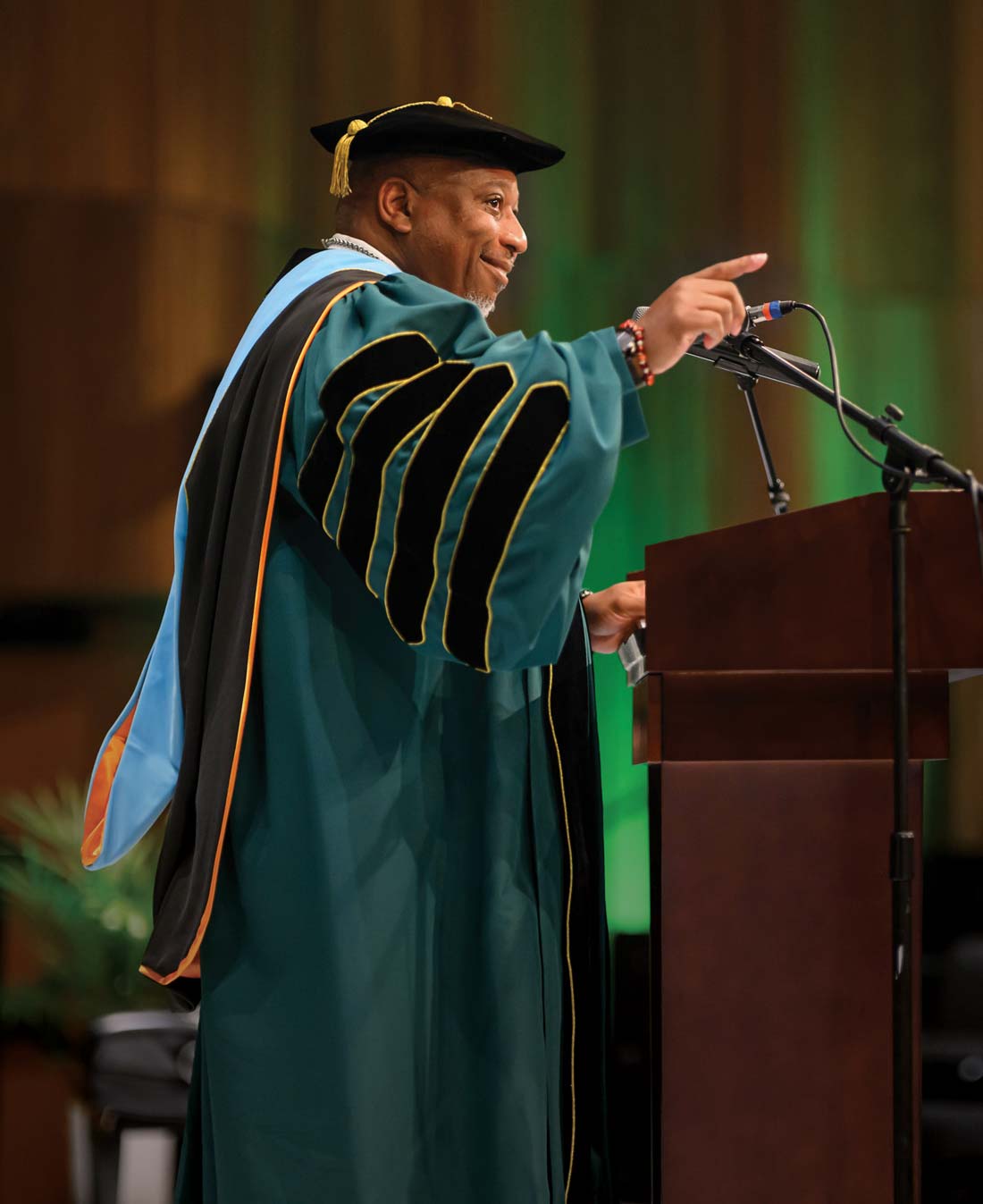Holyoke Junior College alumni take a walk down memory lane
A former president of HCC once made the mistake of referring to Angela Wright as a graduate of “Holyoke Community College.”
It’s true that Wright — originally Angela Cataldo — is listed in the HCC alumni database as a member of the class of 1954. But at that time, the school was still known as Holyoke Junior College, which Wright was quick to point out.
“It was different back then,” Wright said recently. “If you look in the yearbook, you can see we’re practically in every picture. We were such a small group. Whatever there was to do, we did it — together. It was special. We were all in the same boat. We didn’t have any money. We were all working. We all had that bond because we saw each other in all our classes.”
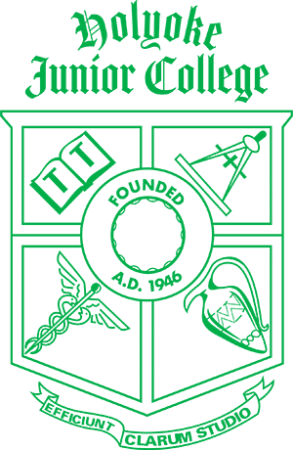
For Wright and many other Holyoke Junior College graduates, the distinction is a matter of personal pride, their memories worth preserving. That pride was on display — and many memories shared — on June 5, as HCC hosted the first-ever Holyoke Junior College reunion at the HCC MGM Culinary Arts Institute.
“We didn’t know how lucky we were back then,” Wright said of her time at HJC. “But, to this day, if somebody says anything about where we went to school, if they say, ‘Holyoke Community College,’ we say, ‘No, it was Holyoke Junior College.”
Holyoke Junior College wasn’t the first incarnation of HCC. It was founded in 1946 as Holyoke Graduate School. The following year, after the state passed legislation authorizing junior colleges, the name was changed. It remained Holyoke Junior College until 1964 when the school joined the newly created Massachusetts community college system.
In those early years, the college shared space with Holyoke High School on Sargeant Street, holding classes in the late afternoons and evenings. Many students worked in the morning, some at their family-owned businesses. For the most part, they walked to school. The student body largely comprised teenagers who had just graduated from high school and slightly older young men returning from military service.
The Holyoke Junior College years encompass all the graduating classes from 1948 (the first) to 1964 (the last).
The school was led by the legendary George Frost, the first president, who shepherded the college through all its iterations, as well as recovery from the 1968 fire that burned down the school and the college’s 1974 relocation to a new campus on Homestead Avenue.
The Holyoke Junior College years encompass all the graduating classes from 1948 (the first) to 1964 (the last). As far as anyone knows, Maurice Ferriter ’52 is HJC’s oldest living graduate, and, by extension, the oldest living Holyoke Community College alum.
“I think that’s right, but I can’t get anyone to vouch for it,” he said at the reunion.
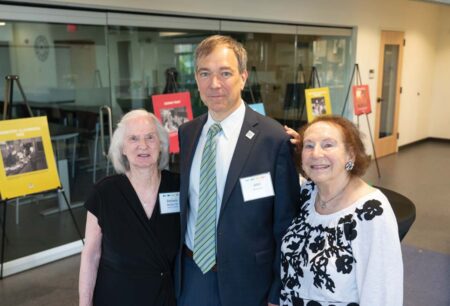
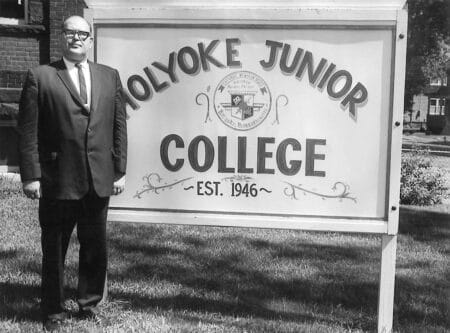
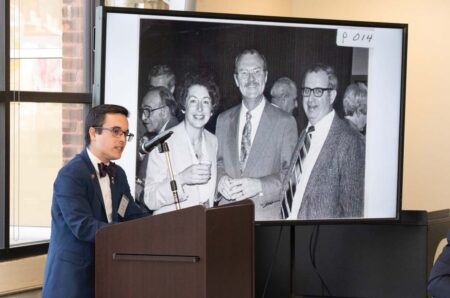
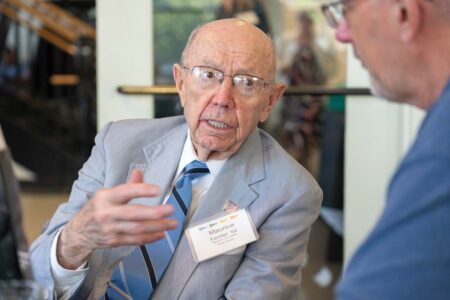
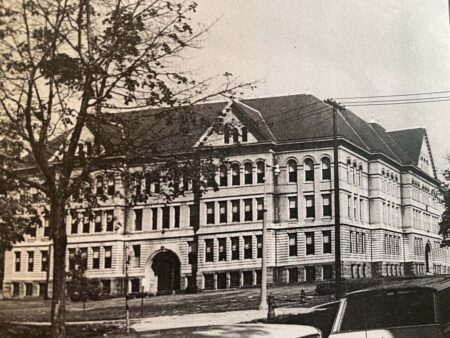
Like many HJC students, Ferriter grew up in Holyoke and attended one of several parochial high schools in the city.
“When I was graduating, George Frost came down to Saint Jerome’s recruiting,” Ferriter recalled. “He said, ‘Where are
you going to school? If you want to go to UMass it’s $50 a semester. If you come up to Holyoke Junior College, you can work, go to school, and it’s only $25 a semester.’ That was a good enough for me.”
Ferriter is not the only alum who credits Frost as a motivating force.
“George Frost happened to be a neighbor of mine,” said Carl Eger ’56. “As much as my family had a business and I was part of that from a young age, Holyoke Junior College gave me my start in life. It gave me the foundation to be able to succeed.”
“My mother and father were good friends of the Frost family,” said Frances Kane ’56. “I was an only child and I don’t think my parents were interested in seeing me leave the house. They said, why don’t you try junior college? At the time it sounded good, and it’s been a lifesaver.”
To a person, HJC alumni hold George Frost in the highest regard, describing him as a father figure and mentor.
“Ronnie (Veronica), George Frost’s daughter, was in my class,” said Peg (Laframboise) Wendlandt ’58, “so we got to know George pretty well. We were always welcome in his home (on Claremont Avenue). We were treated like family. He was quite a guy.”
“A towering guy,” said Patrick Bresnahan ’57. “My father was a milkman. We had a very small dairy. When I got out of the Marines, that’s what I felt I had to do, but with my father’s encouragement and George Frost’s acceptance, I went to Holyoke Junior College, and it has meant so much to me.”
Soon after graduating from HJC, Bresnahan, now retired, founded the Bresnahan Insurance Agency, which still operates offices in Holyoke and Amherst.
“If it wasn’t for junior college, I would probably be a milkman, if there still were such things,” he said. “I owe my debt of gratitude to George Frost, Ellen Lynch (Frost’s longtime secretary), and the faculty.”
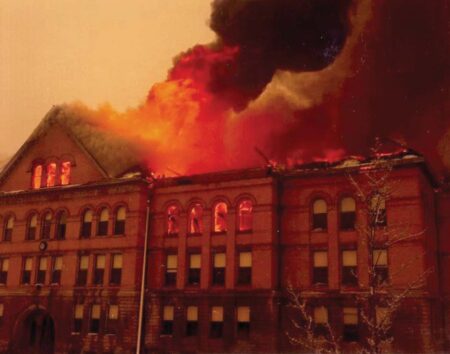
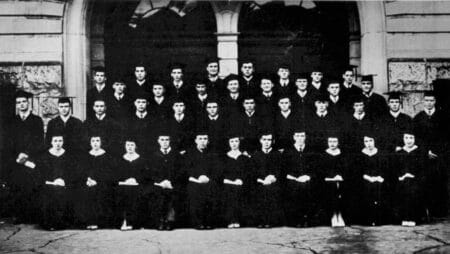
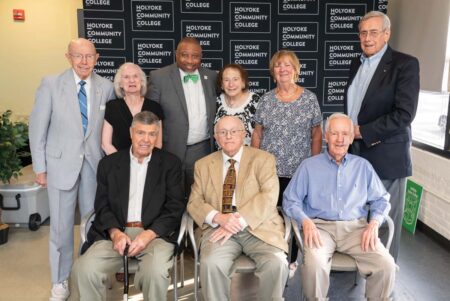
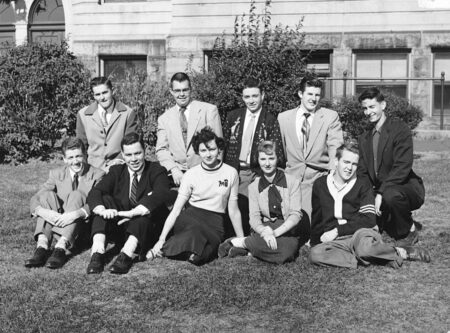
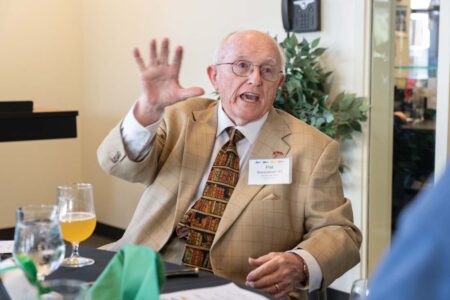
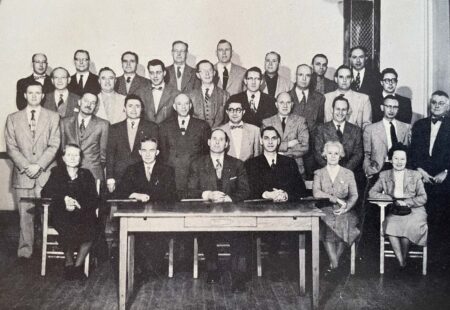
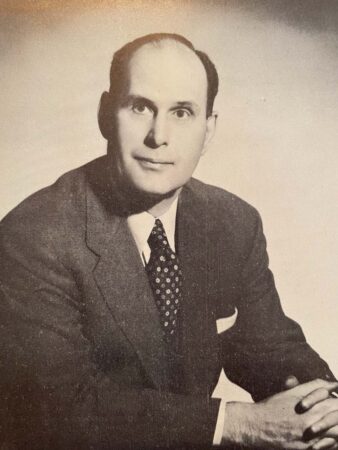
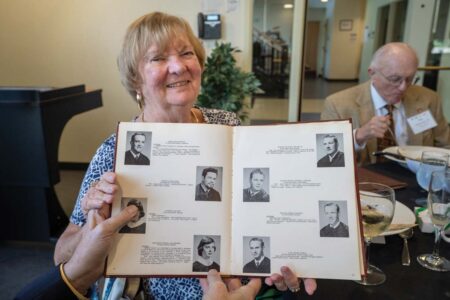
For a long time, Frost was the only college administrator and performed just about every college function himself: admissions counselor, bursar, academic adviser, transfer coordinator, and, when needed, custodian (not above climbing a ladder
to change light bulbs in the hallway) and chauffeur (driving students to four-year colleges for admissions interviews).
“He was the go-to guy, no matter what kind of problem you had,” said Wright. “A class problem, scheduling problem, teacher problem. It’s not like there was a cadre of people specializing in everything. We only had George. He was an incredible mentor. He adopted you and really made you feel like you were one of his children.”
“He wanted everyone to succeed, whether you were just out of high school or just out of the army,” said Barbara (Sullivan) Meckel ’54. “You got that feeling he really, really wanted you to succeed.”
Frost did everything he could to make sure HJC offered the highest quality instruction. Although Holyoke Junior College didn’t have a full-time faculty, Frost recruited the best professors from nearby four-year colleges and universities to teach part time.
“They were all heads of their departments, doctors all,” said Bresnahan. “For English, I had a professor from Mount Holyoke College. For speech, I had a professor from Amherst College. Teaching me French was Mademoiselle Bourgoin from Smith College. I had Professor Sollenberger for sociology. He was also from Smith.”
Professors from the University of Massachusetts, Westfield State, Springfield College, and American International College were also on the teaching roster.
“It was a wonderful faculty,” said Ferriter, who went on to UMass and Western New England School of Law before opening his own law firm. “Really, an outstanding faculty. You knew coming to Holyoke Junior College you were going to get an education second to none. If I had had an offer to go to Harvard, I wouldn’t have gone, because this place had much better education and much more opportunity.”
Those faculty members eased the pathways for students looking to continue their education at four-years schools.
“I think they helped us get in,” said Wendlandt, who transferred to UMass, graduating in 1960 with her bachelor’s degree in math.
“I got a job right away at MassMutual,” she said, “but I give all the credit to Holyoke Junior College. Holyoke Junior College accepted me, treated me well, and taught me well. I’ve never regretted going there. Never.”
On page 10 of the 1954 edition of “The Latchkey,” the Holyoke Junior College yearbook, you will see a graduation photo of Angela Cataldo, now Angela Wright. In the description of her college activities, it says she was a member of the yearbook staff, the college newspaper (“The Junior College Chief”), the Dramatic Club, Variety Show co-director, and a member of the committee that organized the annual Brightside Christmas Party.
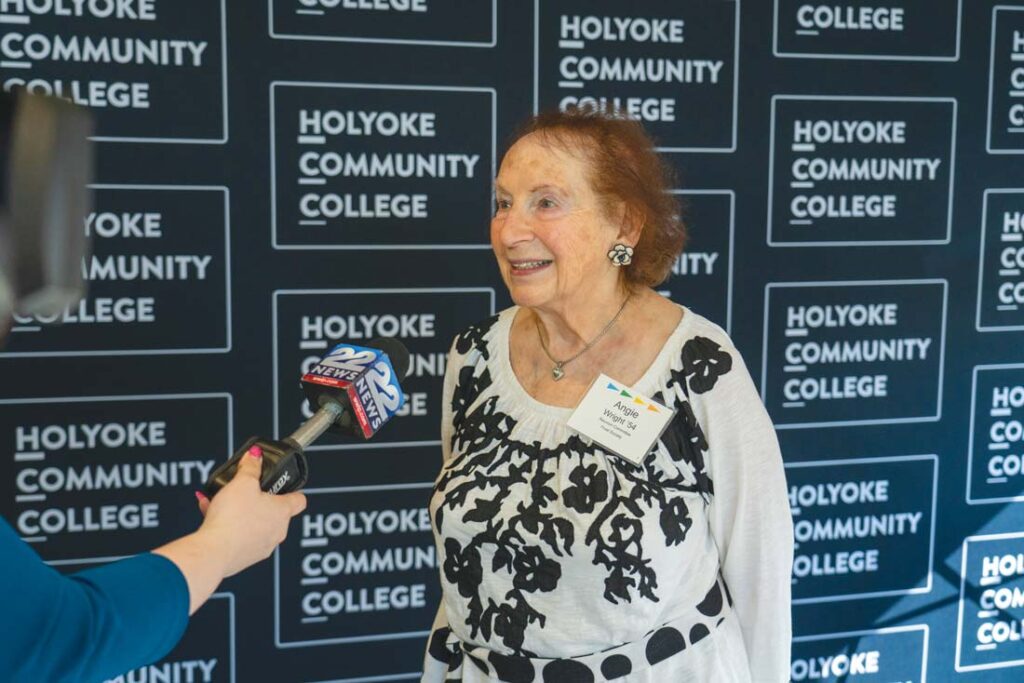
But that is not all she was up to. She also served on planning committees for the Student Alumni Hop and the Spring Dinner Dance.
Many of her classmates — there were a mere 39 in the class of 1954 — have equally impressive college resumes, including future state House Speaker and HCC President David M. Bartley, who was chosen by the faculty as the student in his class “who contributed most to Holyoke Junior College.”
“Holyoke Junior College really gave us the opportunity to do everything,” said Wright. “It gave us opportunities to do things that you couldn’t have done in a bigger college.”
Both “The Latchkey” and the “Junior College Chief”, in fact, debuted in 1954.
“We invented a lot of those things,” said Wright, “whether it was speech club or student council — we had a prom — because there wasn’t much going on at the school, club wise or fun wise or sport wise. We felt there should be more.”
Classes let out at 8:30 or 9 p.m., but students stayed late for extracurricular activities.
“I think the unity is one thing that made Holyoke Junior College so special,” said Meckel, “everybody working together on committees, any activity that was going on. We all got together and tried to cooperate. It was so unique, and it was so small. It was just the perfect formula.”
Those good feelings have kept many HJC alumni in close contact with the school as it evolved, endowing scholarships through the HCC Foundation and serving on college boards.
“I’ve been around the campus for many years,” said Kane, who served on both the HCC Board of Trustees and the board of the HCC Foundation. “My son went to Holyoke Community College. My daughter-in-law went to Holyoke Community College. Both have done well in life. Their children, my grandchildren, went to Holyoke Community College. One is now in law school, and the other in pharmacy school. So, Holyoke Community College has been great to me through my whole life. That I’ll never forget.”
About two dozen Holyoke Junior College alumni and their spouses attended the June reunion. During an open mic portion of the evening, President George Timmons asked alumni to answer the question: What made Holyoke Junior College so special?
“Our classmates. George Frost. Ellen Lynch.”
“We were a family.”
“It was a small group of people, close knit.”
“At a point in time, it served a purpose for many who otherwise wouldn’t have achieved advanced education,” said Eger, whose 45-year career included senior administrative positions in federal and state departments of commerce and transportation.
“I found Mr. Right here,” said Angela Wright, referring to her late husband Joseph Wright ’54, who died in 2022.
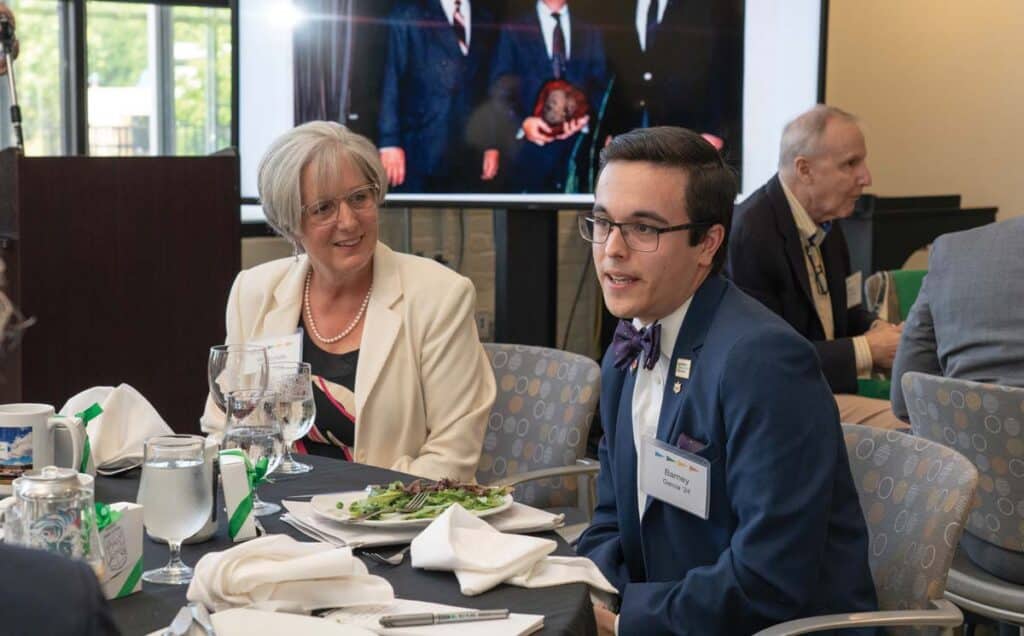
Among the reunion speakers was one of HCC’s youngest graduates, 2023-2024 student-trustee Barney Garcia ’24, who talked about how much Holyoke Community College has changed his life. In preparing his speech, he noted he had studied some of the history of Holyoke Junior College. And that evening, before and after his speech, he mingled among his elders.
“If by some chance in the future HCC becomes a four-year school and becomes Holyoke State College or Holyoke State University, I’ll still refer to myself as an HCC alum,” Garcia said. “I understand their pride. They should be proud.”


